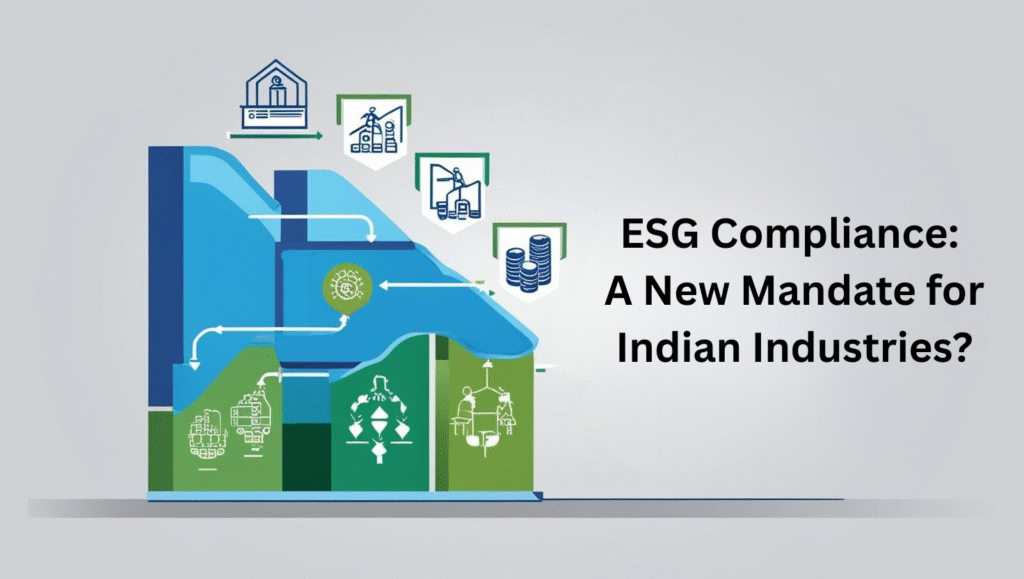
With India’s manufacturing sector targeting a USD 1 trillion valuation by 2025-26, Environmental, Social, and Governance (ESG) compliance is emerging as a critical mandate for industries. Driven by global investor demands and regulatory mandates like SEBI’s Business Responsibility and Sustainability Reporting (BRSR), 68% of top Indian firms adopted ESG practices in 2024, per a CII report. Is ESG now a non-negotiable for Indian industries? ESG compliance promotes sustainability and competitiveness. Tata Steel’s Jamshedpur plant, powered by sunlight and recycling 97% of waste, saved USD 10 million every year while complying with EU green standards. IT leaders such as Infosys, a member of the Dow Jones Sustainability Index, announce zero-emission targets, securing USD 1 billion ESG-driven investments in 2024. BRSR, compulsory for the top 1,000 listed companies from FY 2022-23, mandates emissions, diversity, and governance disclosures, in line with UN Sustainable Development Goals. Government regulations are also spurring adoption. The National Green Hydrogen Mission, with INR 19,744 crore, encourages clean energy in petrochemicals. SEBI’s BRSR Core, rolled out for the top 150 firms in 2023-24 and expanding to 1,000 by 2026-27, mandates third-party assurance for nine KPIs, including water footprint and gender diversity. The Perform, Achieve, and Trade scheme incentivizes energy efficiency, benefiting 1,000 units, per Invest India. Global pressure, with 61.3% of manufacturers expecting long-term ESG gains, pushes exporters in Rajkot to comply, per a 2024 survey. Challenges persist. Deterrent high compliance costs discourage 70% of MSMEs, which account for 27% of GDP, according to Nasscom. Just 30% of companies employ ESG-trained personnel, and 43% were subject to cyberattacks in 2024, compromising data integrity. Small companies in Ludhiana are unable to navigate BRSR’s intricate reporting, and uneven enforcement compromises impact, with 328 of 500 companies not reporting in FY 2021-22, according to SEBI. Solutions are shaping up. The Digital MSME Scheme provides 50% subsidies for ESG tools, and Skill India trains 5,000 workers every month in sustainability. Clusters of MSMEs such as Coimbatore share green infrastructure, reducing costs. Jointly working with industry associations such as Ficci gives compliance templates. Beginning with low-cost steps, such as energy audits, makes the transition smooth.The stakes are high. ESG-compliant companies receive 4.7 times more capital, with ESG funds going up to INR 12,300 crore in 2024, according to industry data. “ESG is a growth driver,” said Priya Menon, an analyst with Ficci. “It’s reshaping India Inc.”
